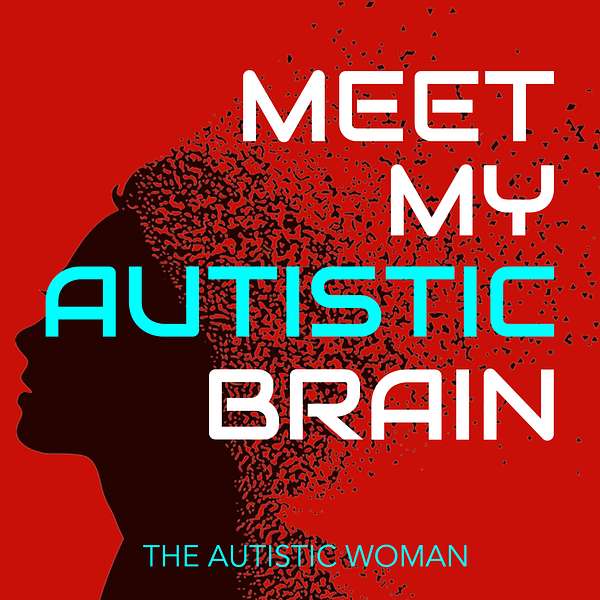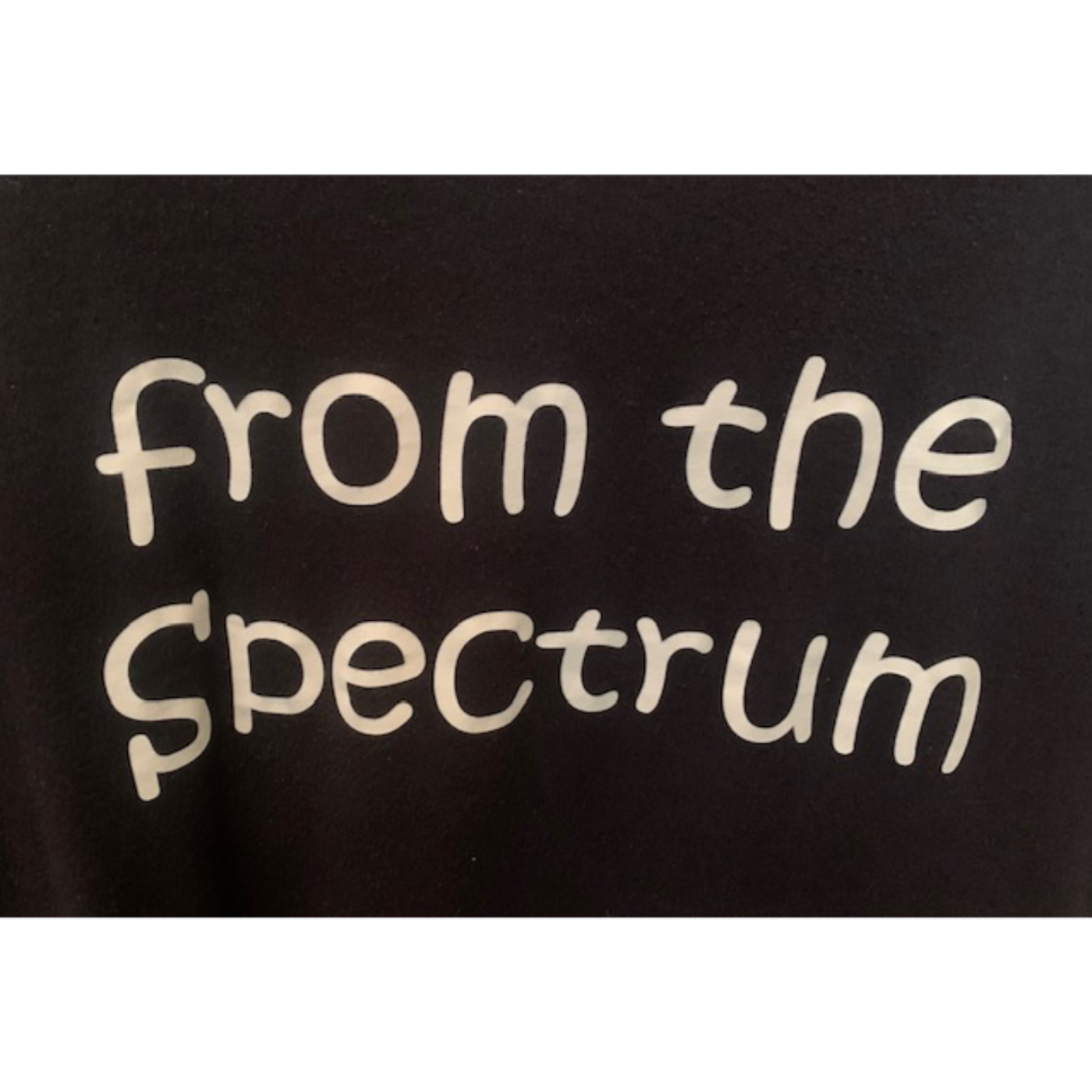
Meet My Autistic Brain
What is it like to find out late in life that you are autistic? The Autistic Woman talks about life experiences and how autistic traits affect her as an adult. You'll hear personal stories, opinions about research and the importance of autistic voices. Includes some fun stuff too and interviews of autistic guests! This podcast is primarily for adult autistics and their family and friends. It's one of the top 0.5% most popular shows globally as ranked by Listen Score with more than 1,000,000 downloads.
Meet My Autistic Brain
Face Blindness
Use Left/Right to seek, Home/End to jump to start or end. Hold shift to jump forward or backward.
NEW EPISODE! Face Blindness: Would you recognize your friend or is her face a blank? If you’ve walked past her without realizing it, this episode is for you.
Someone you know may look like a stranger. It’s called prosopagnosia and some autistics live with it
If you struggle it might not be your eyesight and you don’t need new glasses. What’s the real reason?
Support the Show! Rate and review the podcast. It helps make this content available to more autistics. It only takes a few seconds to rate, less than a minute to review.
Twitter: @anautisticwoman.com
Email: info@theautisticwoman.com
http://theautisticwoman.com
https://linktr.ee/theautisticwoman
Slava Ukraine!
RATED IN THE TOP 0.5% GLOBALLY with more than 1,000,000 downloads!
If you are an autistic person who has written a book about autism or if you have a guest suggestion email me at info@theautisticwoman.com.
Instagram
Ko-fi, PayPal, Patreon
Linktree
Email: info@theautisticwoman.com
Website
June 24-28, 2026 In Rewilding Together
It’s not related to memory dysfunction, memory loss, impaired vision or learning disabilities. It’s not a disease so there’s no cure.
This episode is about face blindness. Would you recognize it?
I don’t have that issue I thought. Seems like I say that about many autistic traits.
The inability to recognize or remember faces is called prosopagnosia or face blindness.
It comes from the Greek words for “face” and “lack of knowledge.” It can involve some faces or all faces. It’s a neurological condition. It’s not related to memory dysfunction, memory loss, impaired vision or learning disabilities.
There is an unproven theory that prosopagnosia may be the cause of impaired social development. I don’t think any one thing on the endless list of things researchers say causes social communication issues. It’s also attributed to imagination, emotion, systematizing, and more. So take that as you will. I think social communication challenges are much more complex.
I enjoy watching movies but I’ve been noticing that the lead and supporting characters are getting harder to differentiate. It takes awhile for me to figure out who’s who. The hero and protagonist will both have brown hair and beards of the same length. In a triangle both love interests look alike. Lately I’ve found myself often saying “Why do producers pick look-alikes for the lead and supporting roles? How am I supposed to tell them apart?” Is that prosopagnosia or bad casting?
As I heard the term face blindness come up again and again, I had to wonder. It didn’t feel like it applied to me. I don’t forget faces, I told myself, I forget names. Lol
I heard an autistic creator talk about walking right past someone he knew because of face blindness. I’ve done that but surely not because I didn’t recognize them right?. It’s because I live in my mind and get so focused that I sometimes miss things. I can walk right past you and convince myself I was distracted by my own thoughts. Is that it?
I’m not comfortable meeting someone in a large public place where I have to search for them. Again, I’ve told myself it’s because I need new glasses. No, seriously I have.
A feeling of panic sets in as I look over the crowd. It didn’t occur to me that it might be a failure to recognize them that was causing my anxiety.
If you have face blindness how do you feel when you do find the person? Are you a bit surprised at what they look like? Do you think, “now I remember.” Or even “I didn’t realize he had gray hair” When of course he always did.
What I have observed for myself is that an autistic person might learn to adapt or compensate for face blindness. I noticed I am better at recognizing other things like clothing. If a person wore a red shirt whenever I saw him I would remember him as the person wearing the red shirt. That’s easier to remember than a face.
The other way I adapt is by masking my inability to recognize people. I’ve been known to say things like “silly me, I walked right past you. I need to pay better attention to where I”m going, haha.”
Another way I compensate is by saying after being introduced to someone I possibly already met is by using my standard line “Yes, I remember meeting you once before. I don’t remember when that was.” Then the person will inevitably tell me where we met. Last week I used that, it always worked before, and the woman snapped back with “no we never met before” and seemed annoyed with me. That was embarassing.
There are other things that help me recognize people. It can be the context, the location ihairstyle or hair color, cool eye makeup, a tattoo. I can’t rely on the face alone with someone I don’t know well. Is that true of others? Does anyone go by faces alone?
Prosopagnosia in autism surprises me because many autistics are visual thinkers. Wouldn’t that help somehow?
I may have face blindness. It might be related to what I call observational blindness. I might visit you frequently over a year period and then one day say, hey when did you get that new lamp? The lamp has always been there, in the same spot, and if I noticed it, it didn’t stick. It will be as if I’m seeing it for the first time.
When I meet a friend for lunch I’m already feeling stressed thinking “was I supposed to meet her inside, outside, at a table?” I search the parking lot for her vehicle. But I don’t remember the make or color of her car. I have a friend I meet every few months and I am still surprised that she has a white car. I thought it was gold.
Sometimes I recognize people and things and sometimes I don’t. Is there a relationship with the level of stress of the situation? Is there a relationship with the relative importance of the situation? As in, is it important to remember a friend’s car color? If so, is it the stress of the thoughts I’m having at the time that causes my mind to shut down or forget?
I can remember an actor or actress I’ve seen once in a movie. How does that work out differently from “real-life.” I have to wonder how the brain works to familiarize itself with some things and not the other. Is it just human faces that we sometimes struggle with?
For this episode I asked a friend this following scenario:
You’re meeting up with a friend. Her sister is with her whom you met once for 5 minutes. When you see your friend and her sister do you recognize her sister? Do you remember that it’s her sister? My friend said it might take a minute but yes, I would.
If I’d met the sister once I would neither remember her face nor that she was my friend’s sister.
There are other times when recognizing faces becomes important. If you’ve ever received a speeding ticket you can relate. In any trial the state’s witness, usually an officer, has to make an identification in court. Can officer who sees hundreds of people testify to recognizing a defendant they talked to for 5 minutes the previous year? I’m convinced that someone with face blindness could probably not be a police officer.
Recognition can be influenced by context. Someone who has only seen me in court might not recognize me at the grocery store?
Did you know that eye-witness testimony of the identity of a suspect is one of the least reliable forms of evidence presented in a court? That’s due to a number of things including context, the quality of the observer’s vision and line of sight, the environment (is it dark out, raining etc.), memory, observational skills, descriptive ability and whatever stress or emotion the person is feeling at the time of the observation and later when testifying.
As an autistic person I know I see and describe things differently than what might be universally accepted, ie, neurotypical. Light brown hair is not blonde to me so I’m in the minority there.
I recently met a new judge at the court. The meeting was unexpected so I was trying to think of what to do and say. Later I saw the a man in the break room and I wondered if that was the judge I met a few hours earlier.
No, I think he’s that woman’s husband. I don’t remember the judge even having a beard, I thought. There aren’t two men like that working here, are there? I tried to listen to his conversation for clues but no luck. It had to be him. He noticed me and made a comment that made it clear he was the judge I met earlier. I can’t attribute that to anything other than face blindness.
In college I did not pick up hitch-hikers. One day I saw someone I knew standing at the side of the road with his thumb out. I stopped the car and as soon as he got in I realized I didn’t know him. Was I about to be one of those women who put themselves in danger when they pick someone up? He seemed as stressed out as I was feeling.
I convinced myself later that was due to bad eyesight. Was it my eyesight or did I experience face blindness?
I found something useful to do when I forget someone and it works most of the time.
Let’s say I’m with my friend Pat, and Chris walks over to us and says hi. I realize I don’t recognize or remember Chris or his name. The polite thing to do is to introduce my friend Pat to Chris but I can’t! I do have a solution that keeps me from having to say “I forgot your name.”
I look at this stranger, Chris and say “This is my friend, Pat.” In the majority of cases the stranger will say “Hi, I’m Chris” He’ll introduce himself because it’s the polite thing to do when you’re introduced to someone else! Try it.
Prosopagnosia is different for everyone with face blindness. Some people don’t recognize their own family members. I haven’t had that experience. I, at times, don’t recognize someone I’ve seen infrequently or haven’t seen in awhile.
The only way I’ve dealt with it is by finding strategies to, in essence, mask it. At least until I figure out if there’s a way to take a picture of someone I’m with without their knowing it.
Have you ever had an experience with face blindness? How does it impact your life?
Podcasts we love
Check out these other fine podcasts recommended by us, not an algorithm.

Atypical: The Podcast
The Atypical Crew

